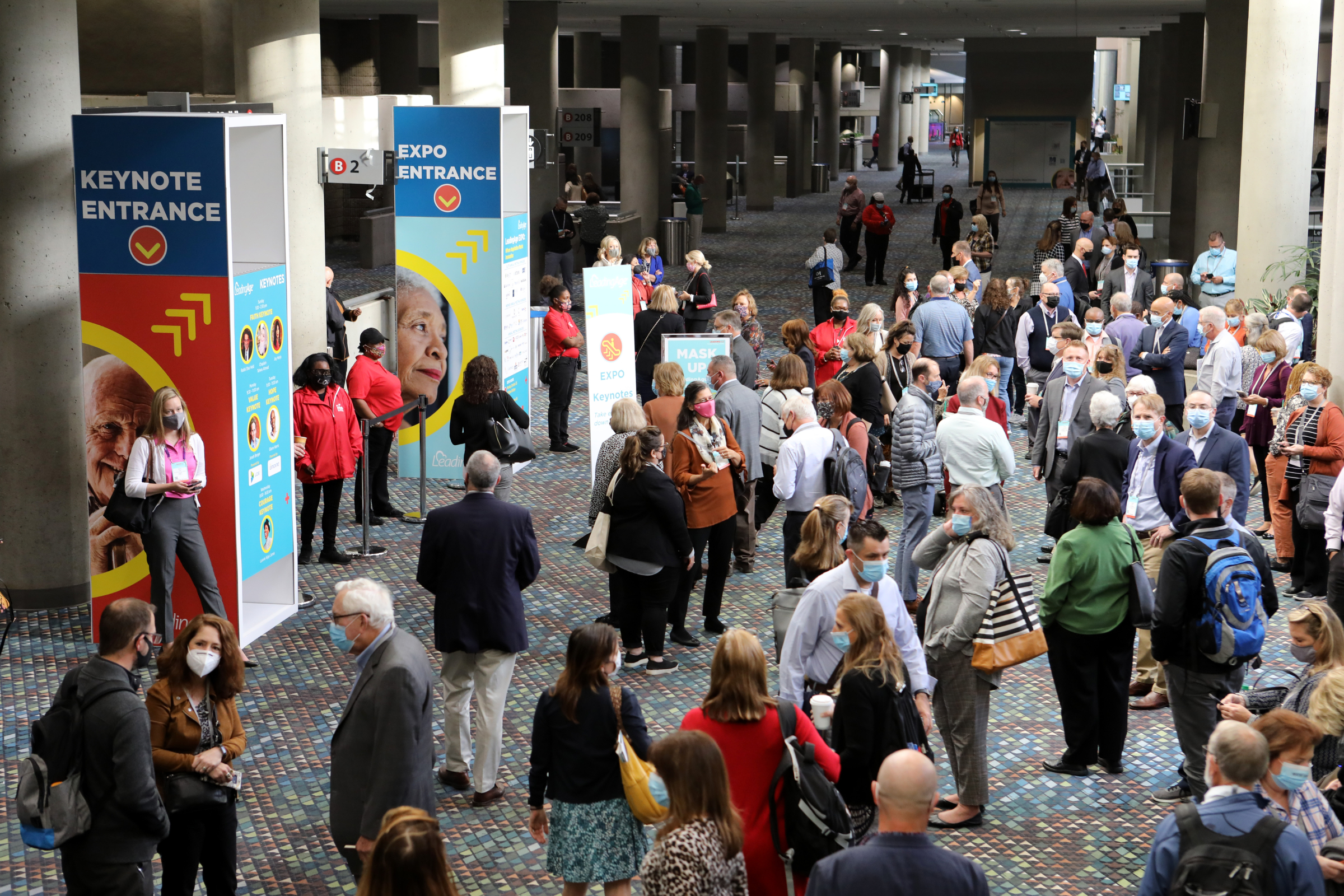Coming Back to Ourselves
In my organization we are very fond of giving labels to efforts we are undertaking. We are deeply committed to “Project Rebuild” and we’ve had “Operation We’re Back!” and the like. We find that “packaging” our efforts in this way helps us to channel people’s energies and keep our focus forward. And that’s all great. But a fun name and a single initiative is not enough to address our (we hope) post-COVID reality and the recovery we need to make, not just as organizations, not just as senior service providers but as individuals.
As I think about, there are some key elements that might be worth your consideration:
- Put our fear aside: While we can say we are moving past the COVID era, most of us are still carrying the anxiety of the last 15 months. We are, with good reason, feeling cautious about everything—from taking off our masks to being a part of the world opening up. I am not suggesting that we need to throw caution to the winds but I am suggesting that we need to ask ourselves whether, when faced with a choice or situation, we are operating with excess caution born from anxiety. We have to examine each immediate reaction—the times we respond, without thought, with “No, we can’t do that.” Like testing the temperature of the water with one toe at a time, we have to open ourselves up again gradually and with care—but steadily nonetheless.
- Come back to life: As we look at how to create a more “normal” and less restrictive environment for our elders, I think we have to do the same for ourselves. Have you been out with friends? Have you seen family you’ve not seen for far too long? Some of our colleagues are still keeping their lives very distant from other people. Reach out, re-engage, reconnect to your life and the fullness of it. Remind yourself that there is more to life than the work that you do and the people that you serve. Remind yourself that you are more than your career.
- Have some fun: There was not a lot of humor in our COVID experience. That is for sure. But that does not mean we didn’t all try to lighten the load as much as possible. Take the time to be playful, in your life and in your work life. It is okay to have silly theme days, to dress up in costumes, to just let go a little. We’ve had “70’s day” with everyone decked out, music playing and a real party atmosphere. We’ve done line dancing, with staff and elders, on the patio with one of our staff serving as DJ. But turning on party music and dancing with your family in your kitchen and just being silly—that’s good too.
- Practice self-care: I know, I know, you read the words “self-care” and roll your eyes. But the truth is that it matters. By self-care I mean being kind to yourself in all respects. Don’t beat yourself up for what did or didn’t happen, try to check your self-criticism at the door or, better yet, invite it to go outside and leave you alone. Do something good for you. It doesn’t matter what, it is just what matters to you. Exercise, get a massage, go shopping, listen to music, take a walk, spend a few hours wandering a museum—find whatever it is that makes you feel whole. And then commit to it and do it.
As leaders this past year, we have felt such weight on our shoulders. I imagine that you, like me, could actually feel the physical pressure of all that we have been carrying. It is time to lighten our load, time to roll our shoulders back and release the tightness in our necks. Time to come back to ourselves, time to once again find the joy in our work, find the joy in caring for older adults.

Most Recommended
October 15, 2025
 Shutdown Week Three: Impact of Ongoing Closure on Affordable Housing
Shutdown Week Three: Impact of Ongoing Closure on Affordable Housing
February 24, 2026
Fiscal Year (FY) Funding 2026
October 07, 2025
Immigrant Workforce Matching Program Brings Workforce Relief
Recently Added
February 26, 2026
HUD Interim Rule Revokes Eviction Notification Requirements
February 26, 2026
President Trump's SOTU: Key Takeaways
February 26, 2026



